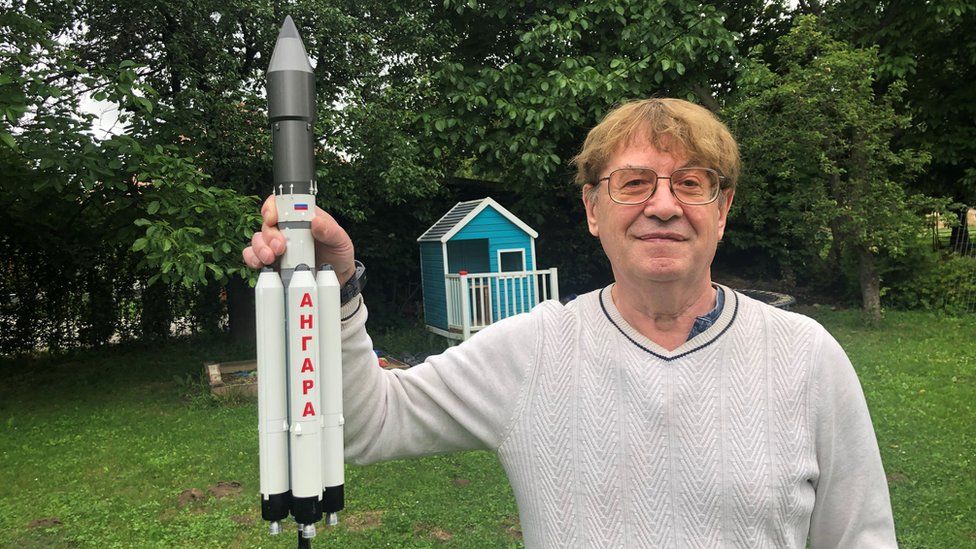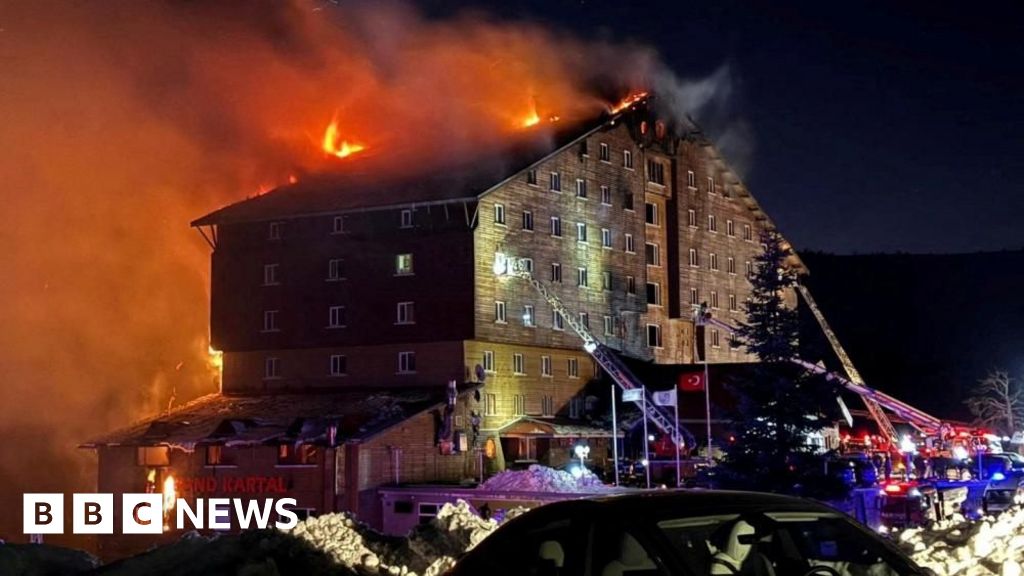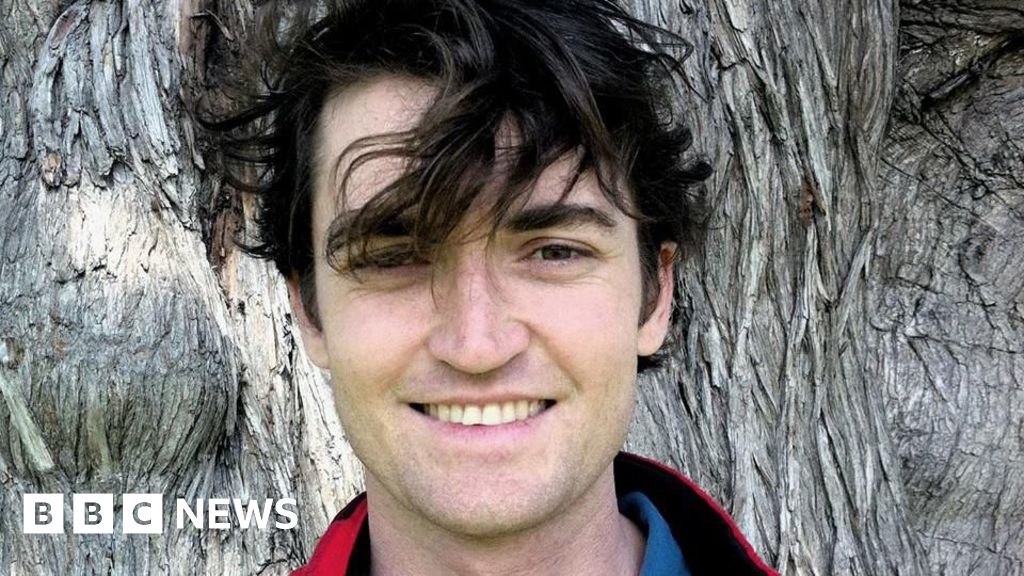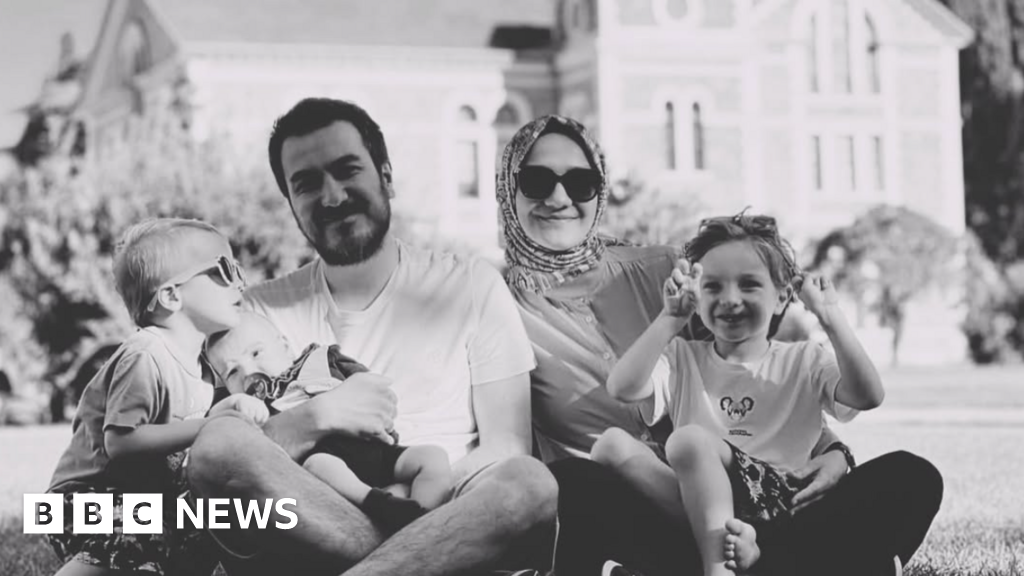ARTICLE AD BOX
By Nick Thorpe
BBC News, Budapest

Anatoly Lazarev was for years at the heart of Russia's space rocket programme
Anatoly Lazarev, 68, holds out his right hand, to show the hard black plastic wristband attached to it. 'Made in Israel!" he laughs. At least house arrest is better than being in extradition detention.
The wristband sends signals to a radio receiver in his living room, to ensure he doesn't stray more than a few kilometres from the small, comfortable house where he whiles away the hours, waiting to find out if he, his wife, and two children aged seven and 10 can stay in Hungary.
His work at Russian space corporation Roscosmos, and then for its daughter companies, put him at the heart of rocket design - building the fuel systems for the Sputnik, Proton and Angara rockets.
The trouble started, he said, in 2012. His company was "invited" to contribute the equivalent of $1m to United Russia, Vladimir Putin's political party. When he refused, a series of investigations was launched against his company, first by the civil, then the military prosecutor. Then began visits from the FSB, successor to the KGB secret police.
Image source, Getty Images
Image caption,Russian President Vladimir Putin (C) listens to Dmitry Rogozin (L), head of Russia's space agency Roscosmos
"Why don't you just pay up?" a police inspector asked him. He didn't - and by 2018, when it was clear the harassment would continue, he escaped from Russia through Belarus by car, carefully avoiding taking a booked flight from Moscow to Vienna.
He chose Hungary as his new home by chance, he explained: "I once visited a friend at a spa here, liked it and thought one EU country would be much like another. And that if need be, the courts would defend me."
In August 2019, Hungarian police arrested him at home, acting on an Interpol red alert issued by the Russian prosecutor. He was taken away in handcuffs after his lawyer had already launched an asylum request.
In April 2020, a Hungarian court ordered his release into house arrest which means he is barred from leaving the county. Hungary's asylum office was asked by another department of the court to re-examine its decision to reject his asylum claim.
Image source, Getty Images
Image caption,Hungary's Viktor Orban has pursued a "pragmatic" relationship with Russia's Vladimir Putin which is out of step with other EU leaders
The asylum office - or to give its full name the National Directorate-General for Aliens Policing - refused on the grounds that the Russian chief prosecutor had "offered guarantees that their (extradition) request was not aimed at political persecution based on political, ethnic, religious, national or other grounds".
This was presented as "new evidence".
"I think the influence of the Hungarian government's politics is clear in the asylum authority's decision," said Tamas Fazekas, a lawyer from the Hungarian Helsinki Committee, who represents Mr Lazarev.
"When we are so dependent on Russian oil and gas, and as it is so clear that the Hungarian prime minister is in a good friendship with Mr Putin, it would be not just naive but stupid to believe that this is not affecting the decisions of the Hungarian authority."
Since he returned to power in 2010, Hungary's Viktor Orban has pursued what he calls a "pragmatic" relationship with Russia, with meetings with President Putin every year, and long-term contracts for Russian gas, oil and nuclear power. Most recently, the prime minister successfully won an exemption for Russian pipeline oil, and vetoed the addition of the pro-war Russian Orthodox Patriarch Kirill to the EU sanctions list.
Approached by the BBC to ask why it believed the Russian prosecutor, and not the opinion of independent Hungarian courts in the Lazarev case, Mr Orban's office replied:
"The National Directorate-General for Aliens Policing, as a law enforcement body, acts on the basis of the legislation in force and... makes individualised decisions in its procedures, which are underpinned by country information from a wide range of Hungarian and international sources.
The authority takes care to ensure that the source used is objective and they do not generalise about any constitutional, social, legal or institutional component of the country of origin."
Back at home in western Hungary, Anatoly Lazarev revealed scale-models of the rockets he used to work on. In a glass cabinet in the hallway were Sputnik and Proton rockets; in his bedroom, the pride of the Russian space programme, the Angara. Its most recent launch was in April this year.
His children played in their room, speaking Hungarian. "My son told me recently he even dreams in Hungarian now," he told me.
"I fully understand that Hungary is a very small country, surrounded by big countries. That it must be very difficult to follow independent policies."
Another case involving a Russian gives him hope. Businessman Alexei Torubarov eventually won asylum in 2019 after his case went all the way to the European Court of Justice.

 2 years ago
25
2 years ago
25








 English (US) ·
English (US) ·